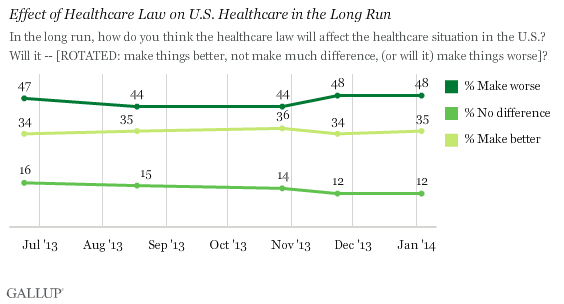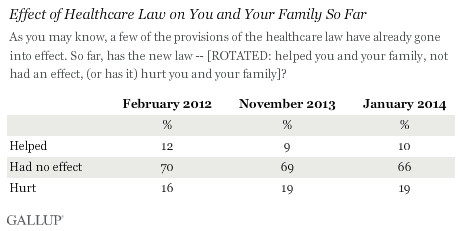Eugene Volokh, in his introductory post, notes that the conspirators new home may change, somewhat what they write. Not in terms of any editorial control from the Washington Post, but a change in reflected how the writers approach their own audience.
This having been said, we recognize that a few things will change, not because of their demands but because our attitudes to blogging will change in some measure. When someone else’s brand is at stake in what you write, you think about that before writing.
I don’t think this will make us shy away from controversy — that’s not our temperament — but it might lead us to cut back on a few of the more personal posts (though I’ll never cut back on the math puzzles). Still, on balance I expect that this will be a very slight effect. We blog because we have things we want to say, and having thePost platform will, if anything, make us more likely to want to say them.
So what will this look like? From my limited experience, when I guest-blogged at Volokh or Concurring Opinions or elsewhere, I did modify my style.
First, I take a lot more time to make sure my posts are perfect. I proofread them maybe 3 or 4 times as much as I do a post here. If I make a mistake on JoshBlackman.com, I’m not so worried. My readers know my style, and it’s my brand. But when I’m using someone else’s site, I am much more careful.
Second, I try to be a little more moderate in my tone than I usually would. My audience tends to know my style, my humor, and my quirks. I will sometimes make a joke with that assumption. Those assumptions are out the window with a bigger audience (I find this quickly in the comments when I toe that line).
Third, I found myself explaining things in much more detail than I do at my own blog. With a broader audience, I suspect there is a wider percentage of non-lawyers, and even lawyers who aren’t academics, reading, and I felt obligated to go into much more depth. The corollary of that is in order to go into a really tough topic, my posts had to be really, really long–which people tend not to read. It’s a hard trade-off.
Fourth, because of all the things I mentioned above, blogging takes more time. So much time, that I found myself cutting back on the number of topics I covered during my brief stints at each site. I didn’t want to peck off a quick 5 minute post, so instead I focused on several larger posts.
The audience for Washington Post (90th highest rank in the United States) is staggering. I will keep a close eye on the site, and monitor any subtle changes I see. Eugene insists his puzzle posts will remain. But what about Somin’s science fiction and baseball posts? And I suspect David’s Israel posts will be received by a much different audience. Further, will readers be interested in the inevitable blogging feuds between Orin and Randy/Ilya/Jon/etc. over the constitutional issue of the day? Some of these exchanges go back and forth a dozen times. Will that same rapport remain?
Also, there is an important, unstated boost for all legal bloggers. The incentive to get a cross-link from Volokh/WaPo has just multiplied by a lot. Today, a link from Volokh, or Instapundit, may generate a few thousand hits in a day. That benefit will increase significantly.
There is also the issue of the paywall. I have been flirting with paying for a WaPo subscription for some time. I already pay for the Times, and it seems annoying to have to pay for two newspapers, but Volokh may push me over the threshold. Plus, with the addition of Radley Balko, who will also probably sit behind a paywall, the balkanized internet emerges (a strong net neutrality irony there).
Speaking of which, what is the next legal blog to be acquired? Will Balkinzation join the Atlantic? SCOTUSBlog was rumored to be acquired by Bloomberg? Maybe Concurring Opinions is absorbed by Forbes? Let the consolidations begin!
Congratulations Conspirators! I look forward to your new home!
Update: This post by Orin from 3/13/06 about his “new venture” at OrinKerr.com may be relevant:
I’ve decided to experiment with a new blog. Starting today, I am splitting my time between the Volokh Conspiracy and a new solo blog, OrinKerr.com. I imagine the new blog as a kind of “lawyer’s lawyer” blog; all of the posts will be about the law, with an emphasis on current legal debates and a broader perspective on the legal academy and the legal profession. I’ll continue to blog here at the VC about general topics, but my legal posts normally will appear only at the solo blog.
In case you’re wondering, I’m trying this experiment for two reasons. First, I find myself increasingly drawn to more legal and less political blogging topics, and I’m not sure I like the juxtaposition of the two that is common at the VC. I gather lots of readers like the combination — the VC’s sitemeter stats are proof enough — but for a range of reasons I’m interested in creating a sharper divide between the two. The new blog will have a much smaller readership than the VC, but I’m not sure that’s a bad thing.
Second, starting a new blog will let me try a new approach to comments. At the new blog, most comments will be by invitation only. I explain the details in my first post, but the idea is to promote comments by a specific group of legal experts and commenters rather the general public. This isn’t very populist of me, I realize, but I think it fits the focus of the new blog: Comments can add tremendous value to a blog post, but legal experts and informed commenters tend to add the most value to blog posts about the law. Of course, my posts here at the VC will continue to be open to all.
Anyway, the plan is to try the new blog for a month or two and see if I enjoy posting there. If it doesn’t work out, I’ll fold up shop and post exclusively at the VC.
Orin’s comments reflect some of the issues I addressed above.
As of now, OrinKerr.com is not active.

